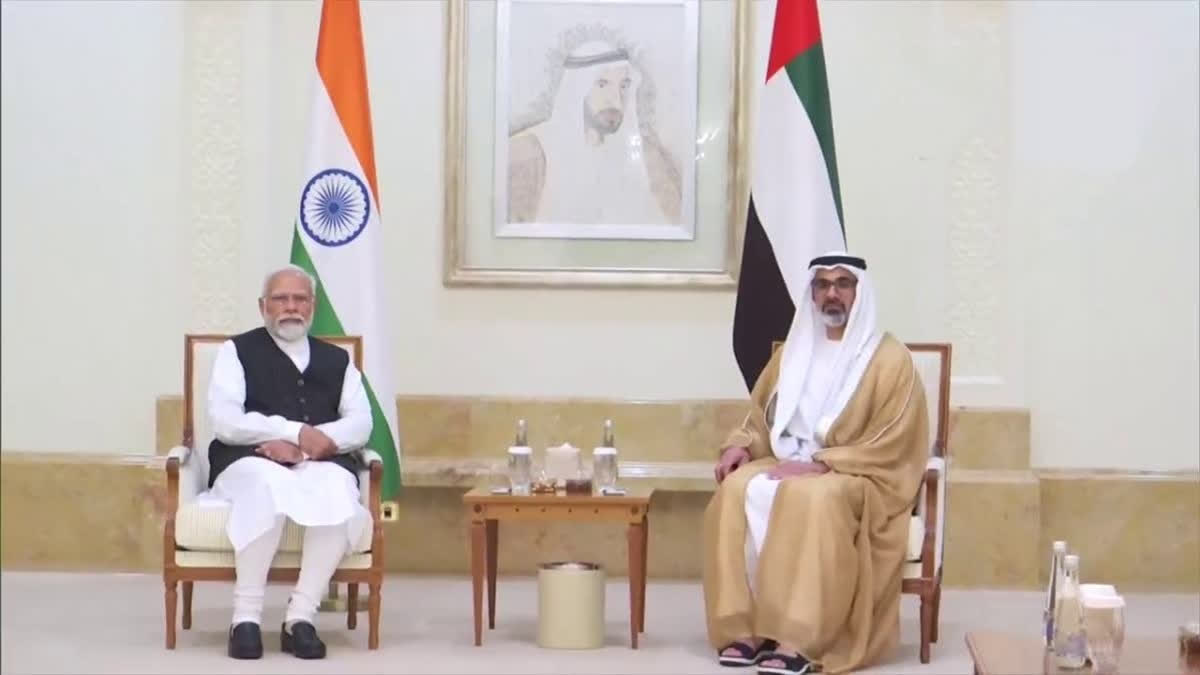New Delhi: Recent developments indicate that India is trying to reinvigorate its ties with Arab countries. Prime Minister Narendra Modi made a stopover in Egypt last month while on his way from his visit to the US. This was his first official visit to the northeast African nation. This came after Egyptian President Abdel Fattah al-Sisi was invited as the chief guest to the Republic Day parade in India earlier this year. Then again, earlier this week, Modi went on a one-day visit to the United Arab Emirates (UAE) on way from his trip to France for the Bastille Day celebrations. In between, Muhammad bin Abdul Karim al-Issa, Secretary-General of the Muslim World League (MWL), also visited India. National Security Advisor also paid a visit to Oman last month.
These recent activities are in line with New Delhi’s Look West Policy that focuses on West Asia and North Africa (WANA), a region New Delhi sees as its extended neighbourhood. India’s need to develop economically made West Asia increasingly important, both as a source of fuel imports and for Indian labour and remittances.
Modi’s visit to Egypt is his first since he became Prime Minister nine years ago. During the visit, President al-Sisi conferred on Modi the Order of the Nile, Egypt’s highest civilian award. “This is a revival of ties between two ancient civilizations,” Talmiz Ahmad, former Indian Ambassador to Saudi Arabia and the UAE, told ETV Bharat during an exclusive interview from London. “We have been aloof from Egypt for quite some time because of political turmoil there. But, Egypt has now become a major leader in West Asia.”
Ahmad said that these are very early days of New Delhi’s engagement with Cairo. “We are trying to explore where we can go. I would attach the most importance to a strategic partnership between the two countries,” he said. Ahmad said that there is a potential for a strategic partnership between India and the western region of the Indian Ocean. One reason is the Suez Canal. The Suez Canal is extremely important for the Indian economy because of its strategic location on the sea routes between the Red Sea and the Mediterranean. It is the only alternate sea trading route to the traditional Cape of Good Hope in the southern tip of South Africa, which is two weeks longer worth of journey. Daily 50 ships pass through the 120-mile stretch of the Suez Canal, making up to 19,000 ships a year.
Though the Persian Gulf is a crucial trade route for India, the Red Sea is equally important, Ahmad said. “Due to the conflicts on the two sides of the Red Sea in Sudan and Yemen, the best way is to establish maritime ties with Egypt and that will be through a strategic partnership,” he said. Regarding Modi’s visit to the UAE earlier this week, Ahmad said that India and the Gulf nation have a very old relationship. This was Modi’s fifth visit to the UAE in nine years.
